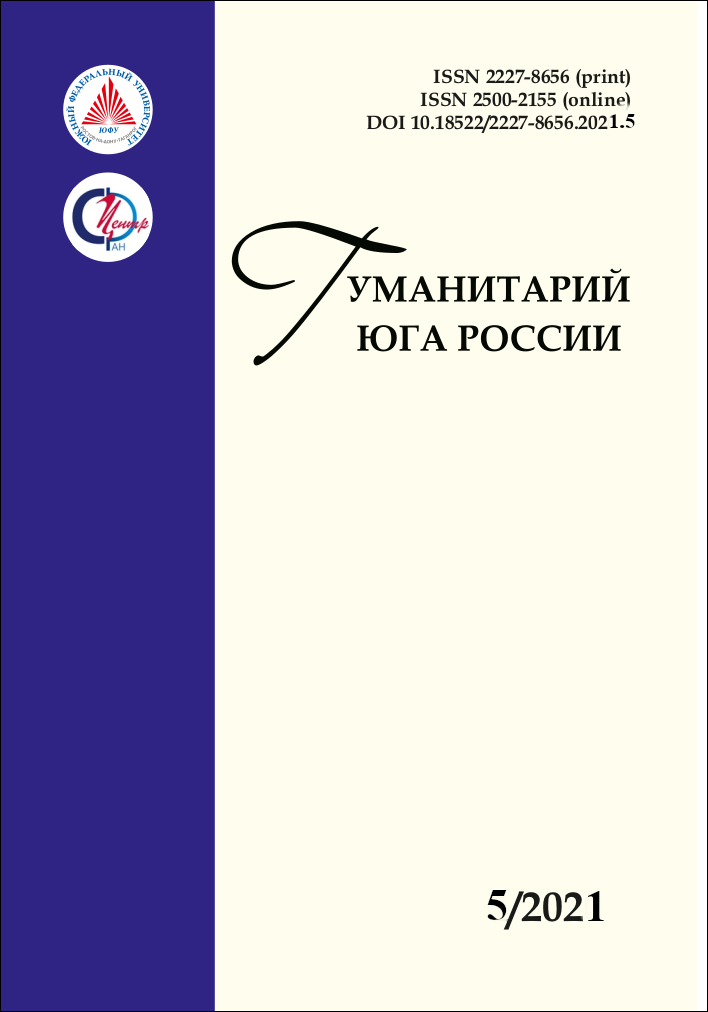Мигранты в социальных сетях: уход от реальности или порождение новой реальности
Научная статья
Аннотация
Литература
Ефимова Г. З., Зюбан З. В. Влияние социальных сетей на личность // Мир науки. 2016. Т. 4, № 5. [Электронный ресурс]. Режим доступа: http://mir-nauki.com/PDF/ 20PSMN516.pdf.
Зорина О. А. Влияние социальных сетей на духовно-нравственное воспитание молодежи // Образование Ямала. [Электронный ресурс]. Режим доступа: http:// yamal-obr.ru/articles/vliyanie-socialnykh-setejj-na-dukhovno-n/.
Кремлева С. О. Сетевые сообщества // Порталус. [Электронный ресурс]. Режим доступа: http://www.portalus.ru/modules/ psychology/ rus_readme.php?subaction=showfull&id=1106643505&archive=01&start_from=&ucat=16&.
Лапшина Е. Миграция и маргинальность в контексте социологии социального пространства // Вестник Санкт-Петербургского университета. Социология. 2010. № 12 (1).
Маклюэн М. Понимание медиа: внешние расширения человека. М.: Кучково поле, 2007. 464 с.
Рзаева С. Этническая социальная сеть как механизм миграционных процессов и адаптации в принимающем обществе: о понятии и устройстве // Вестник Томского государственного университета. История. 2015. Вып. 395.
Тимошкин Д. Доверие vs дезинформация: экономика русскоязычных «мигрантских» групп в социальных сетях // Экономическая социология. 2019. Т. 20, № 5.
Bakewell O., Engbersen G., Fonseca M. L., Horst C. (Eds.). Beyond networks: Feedback in international migration. Basingstoke, UK: Palgrave MacMillan, 2016.
Baldassar L., Nedelcu M., Merla L., Wilding R. ICT-based co-presence in transnational families and communities: Challenging the premise of face-to-face proximity in sustaining relationsh // Global Networks, 2016. Vol. 16. P. 133–144. Doi:10.1111/glob.12108.
Brinkerhoff J. Digital diasporas: Identity and transnational engagement. Cambridge, UK: Cambridge University Press, 2009.
Deleva Z. Conceptualizing Migration in Europe: Selected Theoretical Approaches // Institute of European Studies and International Relations Faculty of Social and Economic Sciences Comenius University Working Paper. 2010. № 4. P. 3–40.
Diker E. Social Media and Migration // Review of Political and Social research Institute of Europe. 2015. Available at: http://ps-europe.org/social-media-and migration/.
Diminescu D. The connected migrant: An epistemological manifesto // Social Science Information. 2008. Vol. 47. P. 565–579.
Everett A. Digital diaspora: A race for cyberspace. Albany: State University of New York Press, 2009.
Hayes A. Digital Immigrant. Available at: https://www.investopedia.com/terms/d/digital-immigrant.asp.
Hepp A., Bozdag C., Suna L. Mediale migranten. Wiesbaden, Germany: VS Verlag, 2011.
Howard R. The Virtual Community. London: Mandarin, 1993.
Leurs K., Prabhakar M. Doing Digital Migration Studies: Methodological Considerations for an Emerging Research Focus. Available at: https:// link.springer. com/chapter/10.1007/978-3-319-76861-8-14.
Marino S. Making space, making place: Digital togetherness and the redefinition of migrant identities online // Social Media + Society. 2016. № 1–9. Doi: 10.1177/ 2056305115622479.
Oiarzabal P., Alonso A. (Eds.). Diasporas in the new media age: Identity, politics, and community. Reno: University of Nevada Press, 2010.
Pavlik J. Media in the digital age. New York: Columbia University Press, 2008.
Pink S., Horst H., Postill J., Hjorth L., Lewis T., Tacchi J. Digital ethnography principles. London: England SAGE, 2016.
Prensky М. Digital Natives, Digital Immigrants. From On the Horizon. MCB University Press, 2001. Vol. 9, No. 5.
Поступила: 02.09.2021
Опубликована: 01.12.2021






